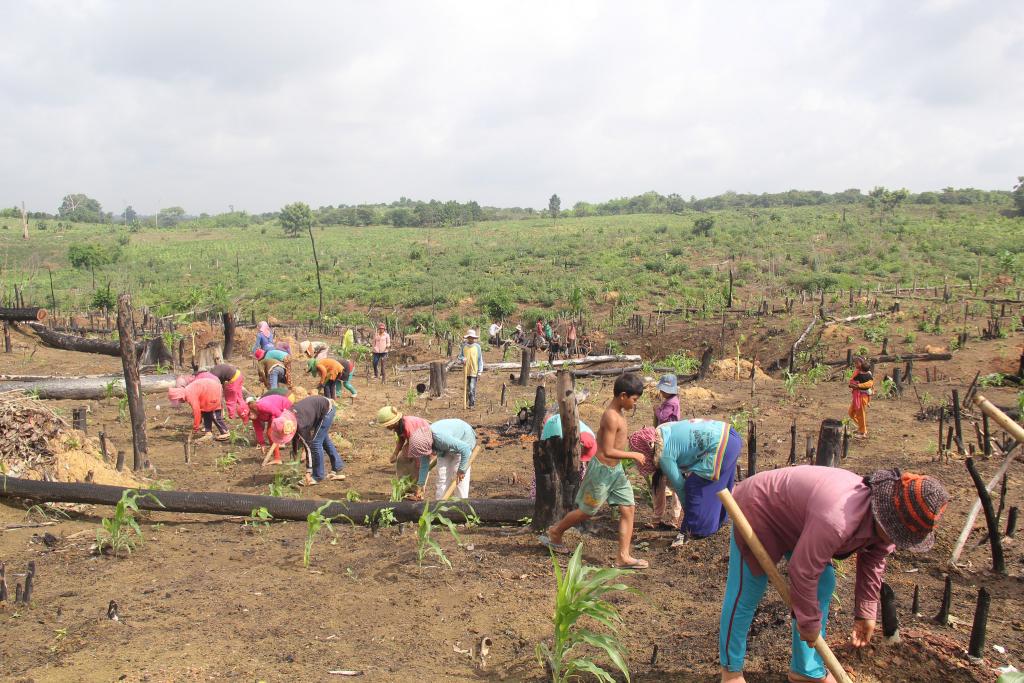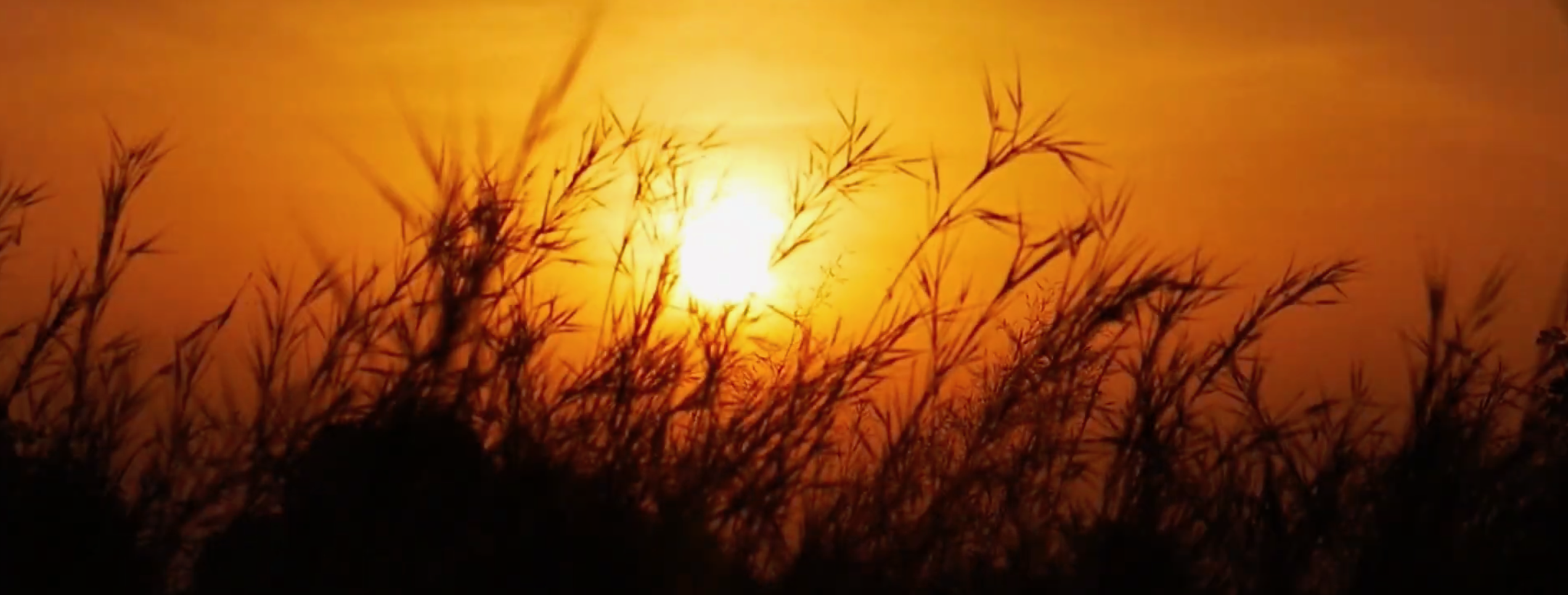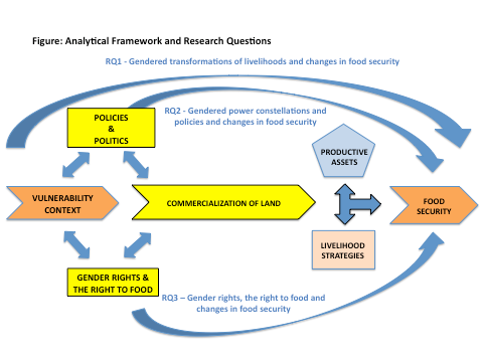Cambodia
Seng Suon
Country Coordinator Cambodia
Seng Suon is Executive Director of Centre for Development Oriented Research in Agriculture and Livelihood Systems (CENTDOR) since 2008. Previously director of research and development CEDAC.
He holds a Masters in Development Agricole Tropical, CNEARC, Montpellier, France(2006), and a BA of Agronomy and Crop Science, Royal University of Agriculture, Cambodia(1996).
Muy Seo Ngouv
Researcher
Muy Seo Ngouv is a researcher at the Center for the Study of Humanitarian Law in the Royal University of Law and Economics (RULE), Cambodia. She holds an LL.M. in International Human Rights Law from Lund University in Sweden, an LL.B. from RULE, and a BA in International Studies from Royal University of Phnom Penh.
Muy Seo conducts legal research and training on topics related to human rights law, humanitarian law and fair trial rights. As part of the Demeter project, she conducts research on challenges to the implementation of laws and policies on gender equality and right to food in Cambodia. Adding to her research role, Muy Seo teaches courses of International Human Rights Law, International Humanitarian Law, and Legal Methods at RULE. She also coaches law students in legal memorial writing and oral pleading to participate in the Nelson Mandela World Human Rights Moot Court held in Geneva, Switzerland.
Prior to joining the project team, Muy Seo was a visiting researcher at the Law Department of the Tallinn University of Technology in Estonia, as part of the European Commission Horizon 2020 Project, where she co-authored a paper on the implementation of children’s right to be heard and be represented in the criminal proceedings in Cambodia.
Kimsan Soy
Researcher
Kimsan joined Center for the Study of Humanitarian Law at Royal University of Law and Economics (RULE) in Cambodia, as one of its researcher in August 2014, before becoming its Director in September 2016. He holds a Master in Human Rights and Democratisation from the University of Sydney, Australia. Kimsan’s recent publications include “Judicial Independence in Cambodia: An Overview Analysis” and “Understanding Acceptance of International Justice through Duch’s Sentence at the Extraordinary Chambers in the Courts of Cambodia”. His current research focus on human rights related to gender equality, land grabbing, fair trial, labor rights, and access to justice.
Alongside his research role, Kimsan teaches human rights and fair trial courses regularly at RULE and provides human rights and research training to legal professionals, practitioners and law students both in Phnom Penh and at provincial universities. Before joining the Center, he also worked at Asian International Justice Initiative as a trial monitor for two years on Case 002/01 of the Khmer Rouge Tribunal.
Ghana
Dzodzi Tsikata
Country Coordinator Ghana
Dzodzi Tsikata is Associate Research Professor at the Institute of Statistical, Social and Economic Research (ISSER) at the University of Ghana where she has worked since 1991. She holds Ph.D in Social Science from Leiden University in the Netherlands. Her research is in the areas of gender and development policies and practices; the politics and livelihood effects of land tenure reforms; agricultural commercialisation, agrarian change and food security; and informal labour relations and the conditions of work. She has coordinated various research projects and has many publications on these subjects.
Her most recent publications include a co-guest edited (with Cheryl Doss and Gale Summerfield) special issue of Feminist Economics on Land, Gender and Food Security (2014) and an edited book (with Ruth Hall and Ian Scoones), “Africa’s Land Rush: Implications for Rural Livelihoods and Agrarian Change”, published by James Currey (2015). Dzodzi teaches the advanced gender and women’s studies course in the Ph.D Development Studies Programme at ISSER. She is on the editorial advisory board of several journals, a member of the UN Committee for Development Policy and Ghana’s National Development Planning Commission (NDPC). Between 2005 to 2012, Dzodzi was deputy head and then head of the Centre for Gender Studies and Advocacy (CEGENSA) at the University. She is the President of the Council for the Development of Social Science Research in Africa (CODESRIA).
Fred Dzanku
Researcher
Fred Mawunyo Dzanku has 10 years of cutting edge research experience and interests spanning a wide range of research areas including: multidimensional household welfare analysis, poverty reduction policy analysis, applied econometric modelling, the economics of agricultural production, food security, and the evaluation of projects and programs.
He has been part of teams of researchers that have designed and implemented many programs and projects. He has extensive experience in the implementation and supervision of household surveys, and multi-country longitudinal surveys in rural areas of developing countries.
Gertrude Dzifa Torvikey
Research Assistant
Gertrude Dzifa Torvikey is pursuing Ph.D in development studies at the Institute of Statistical, Social and Economic Research (ISSER) University of Ghana. She obtained her MPhil in migration studies from the same University and BA in French from Kwame Nkrumah University of Science and Technology.
She worked as a teaching assistant at the Centre for Gender Studies and Advocacy (CEGENSA) at the University of Ghana and also as a researcher/research assistant on several projects including Gender, Land and Accountability in Ghana, Land and Agriculture Commercialization in Africa, Four Basins Gender and Agriculture Profiles Project amongst others. Her research interests include gender, agrarian livelihoods and internal labour migrations.
Irene Tagbor
Administrative Assistant
Irene Tagbor, HND in Secretarialship and Management Studies, has been working as an Administrative Assistant at the Institute of Statistical, Social and Economic Research since 2011. Her work entails store management, conference facility managemen,t and the organisation of conferences and workshops.
Irene also works in administrative positions on some research projects at the Institute.
Martha Awo
Researcher
Martha A. Awo obtained her Master’s training in Development Studies in the Institute of Social Studies (ISS) in The Hague, The Netherlands and her PhD in the Center for Research Development (ZEF) in University of Bonn, Germany. She is currently a Research Fellow at the Institute of Statistical Social and Economic Research (ISSER), University of Ghana where she also teaches Research Methods at the graduate level.
As a former employee of the Ministry of Food and Agriculture in Ghana, Awo has since 2000, been involved in the implementation of government projects and collaborated with local and international scientists to carry out studies in different areas of agriculture. She has also undertaken a number of studies for both local and international organizations such as the UN (International Trade Center) and the World Bank. Her research interest includes agricultural trade issues, domestic and rural markets, gender dynamics and rural development, food security and poverty issues.
Peter Atupare
Researcher
Peter Atudiwe Atupare is a full-time Lecturer at the School of Law, University of Ghana, Accra. He received his B.A and LL.B in 2003 and 2006 respectively from University of Ghana. He earned his M.A in Comparative Politics from Brock University in 2007 and his LL.M (Thesis Option) and PhD (Law) from Queen’s University, Canada in 2008 and 2011 respectively. He is a leading figure in Public Law in Ghana and Nigeria and has published widely on these two states.
He is the author of the much acclaimed book: Constitutional Justice in Africa: An Examination of Constitutional Positivism, Fundamental Law and Rights in Ghana and Nigeria (Durban, LexisNexis, 2013), and journal articles like Reconciling a Fundamental Law of Reason with Socio-Economic Rights and Directive Principles in Ghana and Nigeria (2014) 27 Harvard Human Rights Journal; The Taxonomy of Transitional Justice in Africa: A Reflection on the Theoretical Trajectories of Truth Commissions and International Criminal Courts (2014) XXVI University of Ghana Law Journal etc. He has released a two volume book entitled Case Brief: The Law of Torts in Ghana. His areas of interest include Constitutional Law, The Law of Torts, Criminal Theory, Human Rights, Jurisprudence, and Legal Ethics.
Promise Eweh
Research Assistant
Promise Eweh is a PhD student in the Institute of African Studies at the University of Ghana where his research focuses on food security as a discourse. Prior to enrolling in the doctoral programme, Promise worked as a teaching assistant at the Institute of African Studies, and was involved in the implementation of a number of research projects including the Quality of Life Project. His main research interest is in African development with special attention to African agriculture, issues of employment and the informal economy in Africa.
Switzerland
Alice Beban
Affiliated Researcher
PhD candidate Alice Beban France is currently in Cambodia conducting research on smallholder land reform initiatives. She is funded by an award from Fulbright-Hays.
Joanna Bourke Martignoni
Project Coordinator and Postdoctoral Researcher
Joanna Bourke Martignoni is a Research Fellow at the Geneva Academy of International Humanitarian Law and Human Rights. She’s working on the right to food and gender equality components of the project from the perspective of international human rights law.
Joanna holds a PhD in law from the University of Fribourg (Switzerland) and her doctoral thesis analysed the implementation of the right to education within the framework of international development cooperation with a special focus on the activities of the World Bank. She also has an LLM in international law from the Graduate Institute in Geneva and degrees in South East Asian history and Law from the University of New South Wales and the Australian National University.
Prior to joining the Academy, Joanna worked in the legal division at the International Committee of the Red Cross and as a project officer at the World Organisation Against Torture. She has also been a Consultant to the Office of the High Commissioner for Human Rights on different issues including; equal political participation, access to justice for women, attacks against girls’ education, violence against women and human rights and human trafficking. Since 2013, she has taught a Masters’ level course on economic, social and cultural rights at the University of Fribourg and she has also been involved in a research project on the treatment of intersectional forms of discrimination by UN human rights monitoring mechanisms.
Christophe Gironde
Researcher - Coordinator Livelihoods
Christophe Gironde is a political economist, currently working as a senior lecturer at the Graduate Institute of International and Development Studies (IHEID) in Geneva. He received his Ph.D. in Development Studies from the University of Geneva. His main research fields are agrarian change and human development. He has extensive field experience in Vietnam since the late 1990s and has carried out research in Cambodia over the last three years on large-scale land acquistions.
Christophe Golay
Coordinator Legal
Dr. Christophe Golay is Research Fellow and Coordinator of the Project on Economic, Social and Cultural Rights at the Geneva Academy of International Humanitarian Law and Human Rights. He is Lecturer and Teaching Coordinator at the Geneva Centre for Education and Research in Humanitarian Action.
He has been Visiting Fellow at the Centre for Human Rights and Legal Pluralism at McGill University in 2013. From 2001 to 2008, he was Legal Advisor to the first United Nations Special Rapporteur on the Right to Food. He undertook missions with the United Nations in Brazil, Guatemala, Bolivia, Cuba, Niger, Ethiopia, Bangladesh, India, and the Occupied Palestinian Territory.
Among other publications, he is co-author of Economic, Social and Cultural Rights in International Law. Contemporary Issues and Challenges (OUP, 2014), “Human Rights Responses to Land Grabbing: A Right to Food Perspective” (Third World Quarterly, 2013), “The Contribution of the UN Special Procedures to the Human Rights and Development Dialogue” (SUR International Journal on Human Rights, 2012), and The Fight for the Right to Food. Lessons Learned (Palgrave Macmillan, 2011).
Ruth Harding
Administrative Assistant
Saba Joshi
PhD Researcher
Saba Joshi is a PhD student in the Political Science/International Relations department at the Graduate Institute. Her PhD focuses on agrarian transformation, gender, peasant resistance and land rights in Cambodia.
Before starting her PhD, she worked at the International Labour Organisation (ILO) in Geneva, Switzerland and the Self-Employed Women's Association (SEWA) in Ahmedabad, India. She has degrees from St Stephen's College, Delhi University, Jawaharlal Nehru University, New Delhi and the Graduate Institute, Geneva.
Kristina Lanz
PhD Researcher
Kristina Lanz is a doctoral student in Social Anthropology based at the University of Berne. She holds an MA in International Studies and Diplomacy from SOAS (School of Oriental and African Studies), University of London and a BA in Development Studies from the University of East Anglia, Norwich. Her doctoral research investigates the impacts a large-scale land acquisition in Ghana has had on the local food system (production, processing, distribution and consumption) from a gender perspective. She is particularly interested in how various local actors use resources, institutions and repertoires to further their interests and adapt to a changing local food system and to (de)legitimize the investment.
Elisabeth Prügl
Principal Investigator and Coordinator Policy and Politics
Faculty member since 2009 and Deputy Director since 2010, Professor Prügl previously taught at Florida International University, where she co-directed the Miami-Florida European Union Centre of Excellence. Her research focuses on gender politics in global governance and feminism in International Relations.
In addition to having published numerous journal articles, book chapters and anthologies, she is the author of The Global Construction of Gender: Home-based Work in the Political Economy of the 20th Century (Columbia University Press, 1999) and Transforming Masculine Rule: Agriculture and Rural Development in the European Union (Ann Arbor: University of Michigan Press 2011). Currently, she serves as associate editor of Politics and Gender, a journal of the Women and Politics Section of the American Political Science Association. Prügl also heads the Graduate Institute’s new research programme on Gender and Global Change.
Andres Torrico
Research Assistant
Andres Torrico is a research assistant for the Demeter project, who has worked both on the implementation of the 2016 Baseline Household survey as well as the quantitative analysis of the results. He holds a Master in Development Studies from the Graduate Institute and a Master in Public Policy and Management from the Catholic University in Bolivia. Prior to joining the institute, Andres worked for the Research Center and Promotion of Peasantry in Bolivia (CIPCA), implementing rural development projects in indigenous and peasant communities in the Bolivian amazon region. Andres also holds a Bachelor degree in Law from the Catholic University of Bolivia.









